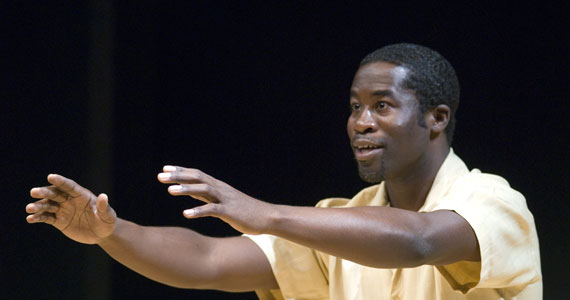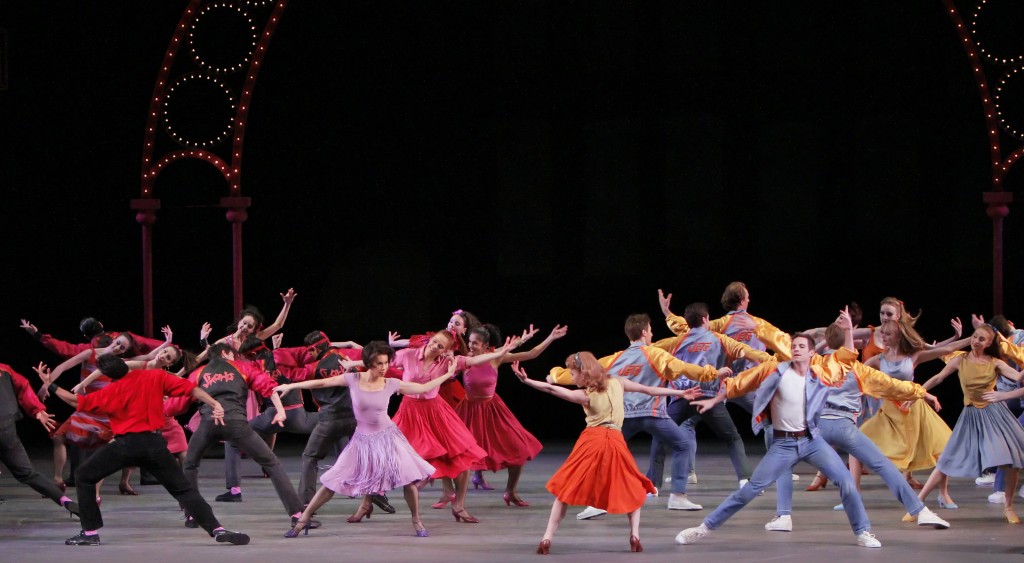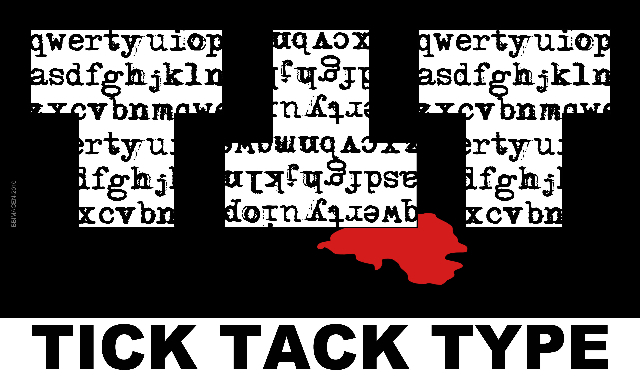
Here at Art Scatter World Headquarters we’re identifying proudly these days with the good townswomen of River City, Iowa, in The Music Man: “Pick a little, talk a little, pick a little, talk a little, cheep cheep cheep, talk a lot, pick a little more.”
With emphasis on the “talk a lot.”
Thanks to the silver-tongued Mead Hunter of Blogorrhea and The Editing Room, who generously passed this honor along to us, we are now recipients of the coveted Prolific Blogger Award, a sort of Oscar for best supporting prattler. In other words: You can’t shut us up. Mrs. Scatter made passing reference to this blogospheric milestone in this post, in which she got all sentimental and teary-eyed over Mr. Mead’s enshrining of her with the honorific “retinue.”
But we blather.
Here’s what it’s all about. Adhering to the biblical code of sevens (like Joseph and his dream-interpretations), the Prolific Blogger Award moves in waves. Each recipient must in turn pay it forward to seven other bloggers who feed the beast regularly. They must also link to the original PBA post (we did that above; it’s on the blog Advance Booking) and, most confoundingly, hook up with the mysteriously named Mister Linky.
Our friend and benefactor Mr. Mead has noted the dismaying phenomenon of once-prolific bloggers who have fallen by the wayside, some no doubt waylaid by the strumpet sirens of Twitter, Buzz and Facebook; others perhaps realizing that there is Life on the Other Side. Yet we found many good and noble blogs worthy of this award. Without further ado ….
THE MAGNIFICENT SEVEN
Noble Viola. Charles Noble, assistant principal violist for the Oregon Symphony, subtitles his blog Life on the Working End of the Viola, and that’s the view he gives you: the world of art music from the inside. It’s smart, provocative, sometimes funny, and almost always illuminating. A good musician isn’t always a good writer. Noble is. Like Lenny Bernstein, he knows how to use words to get inside sounds.
Rose City Reader. You’d think RCR would already own the franchising rights to the Prolific Blogger Award. A busy lawyer by day, she’s a compulsive reader, list-maker and blogger by night (or maybe early morning). Her reading is catholic, roaming from classics to contemporary lit to arcane food-and-drink books to history, politics, and the occasional P.G. Wodehouse caper. And she writes about her literary adventures with wit and savvy independence.
Portland Through My Lens. Having completed (with occasional additions) the terrific Fifty Two Pieces, in which she and a friend spent a year writing about art and artists connected to the Portland Art Museum, LaValle Linn has picked up her camera and embarked on this visual adventure, recording life and images around and about Portland’s streetcar line. Following it is like taking your morning coffee in a different little hangout every day.
Portland Architecture. If you build it, they will argue. Brian Libby’s ambitious blog serves the dual purpose of keeping up with the city’s maze of architectural news and providing a platform for architects and planners and citizen-advocates to vent on issues as broad-ranging as neighborhood design and the fates of Memorial Coliseum and the Rose Quarter.
Powell’s Books Blog. We aren’t sure who actually puts this together, but Portland’s iconic bookstore runs an excellent blog. It’s wide-ranging, with lots of topics and lots of guest bloggers, often writers with fresh books on the market. Sure, it’s a commercial blog, but it pops with good writing and stimulating ideas. You can never keep up with what’s going on in the publishing biz, but this is a good start.
Splattworks. Playwright Steve Patterson’s blog begins with matters theatrical but often veers sharply into other obsessions, from photography to guitars to the inanities of the political world (on which he can be witheringly caustic). Smart, funny, passionate; a blog of admirable exasperations.
Eva Lake. A lively checking-point for gallery hoppers. The artist and journalist Eva Lake, whose Art Focus program on KBOO-FM features often fascinating interviews with Portland artists and curators, tracks what’s happening on the city’s art scene.

 The city-run Portland Parks & Recreation, which owns the old firehouse and its grounds, announced that the non-profit IFCC’s board has voted to cease operations because of persistent deficits, in spite of decent attendance at events.
The city-run Portland Parks & Recreation, which owns the old firehouse and its grounds, announced that the non-profit IFCC’s board has voted to cease operations because of persistent deficits, in spite of decent attendance at events. Funny, isn’t it, that both money and manure hit the fan in the world of politics? This isn’t a condemnation. It’s the necessary nature of the political beast. You shovel and shovel, and spread and spread, and hope you’ve put the seeds in the right places. In tough times, the process tends to get heavy on manure and light on money — and these, as you might have noticed, are tough times. Do we spend our way out of our economic mess, or batten the hatches and risk total shutdown?
Funny, isn’t it, that both money and manure hit the fan in the world of politics? This isn’t a condemnation. It’s the necessary nature of the political beast. You shovel and shovel, and spread and spread, and hope you’ve put the seeds in the right places. In tough times, the process tends to get heavy on manure and light on money — and these, as you might have noticed, are tough times. Do we spend our way out of our economic mess, or batten the hatches and risk total shutdown? I have a dirty little secret. It’s so dirty I don’t even add commas between adjectives.
I have a dirty little secret. It’s so dirty I don’t even add commas between adjectives.


 When
When  Two recent events, conjoined by accident, have brought Mr. Beck unfortunately to mind.
Two recent events, conjoined by accident, have brought Mr. Beck unfortunately to mind.
 The worst performance shall come first: an unspeakably godawful belly dance demonstration on board the Nile River boat on which I spent four otherwise glorious nights.
The worst performance shall come first: an unspeakably godawful belly dance demonstration on board the Nile River boat on which I spent four otherwise glorious nights.
 This should be interesting. I sat in on a rehearsal a few days ago and afterwards talked with Veggetti for about 20 minutes. He’s smart and eloquent (he speaks five languages, fortunately including English), with a lot to say about his own background and the state of dance in general. He also has strong background in experimental theater and opera (“I was raised at
This should be interesting. I sat in on a rehearsal a few days ago and afterwards talked with Veggetti for about 20 minutes. He’s smart and eloquent (he speaks five languages, fortunately including English), with a lot to say about his own background and the state of dance in general. He also has strong background in experimental theater and opera (“I was raised at 